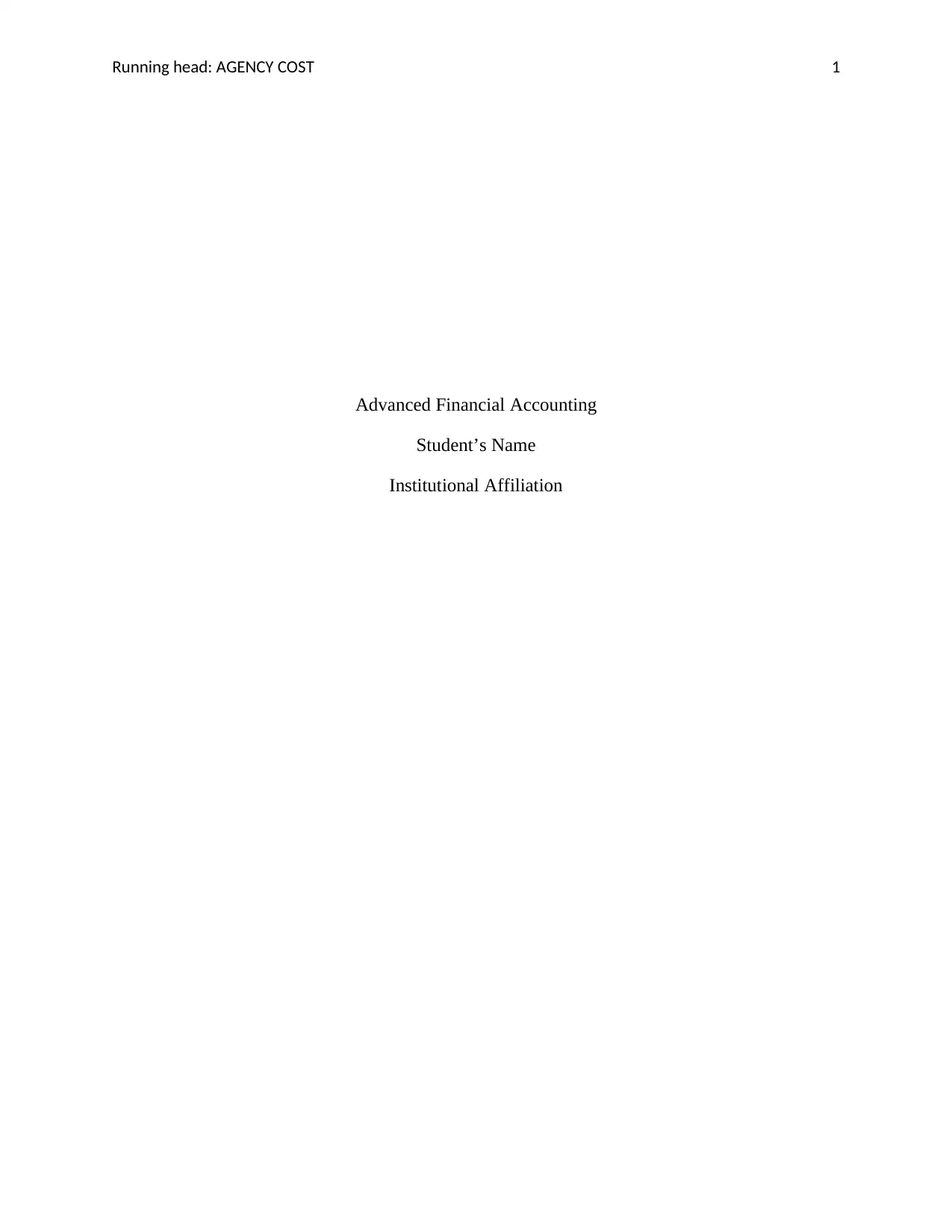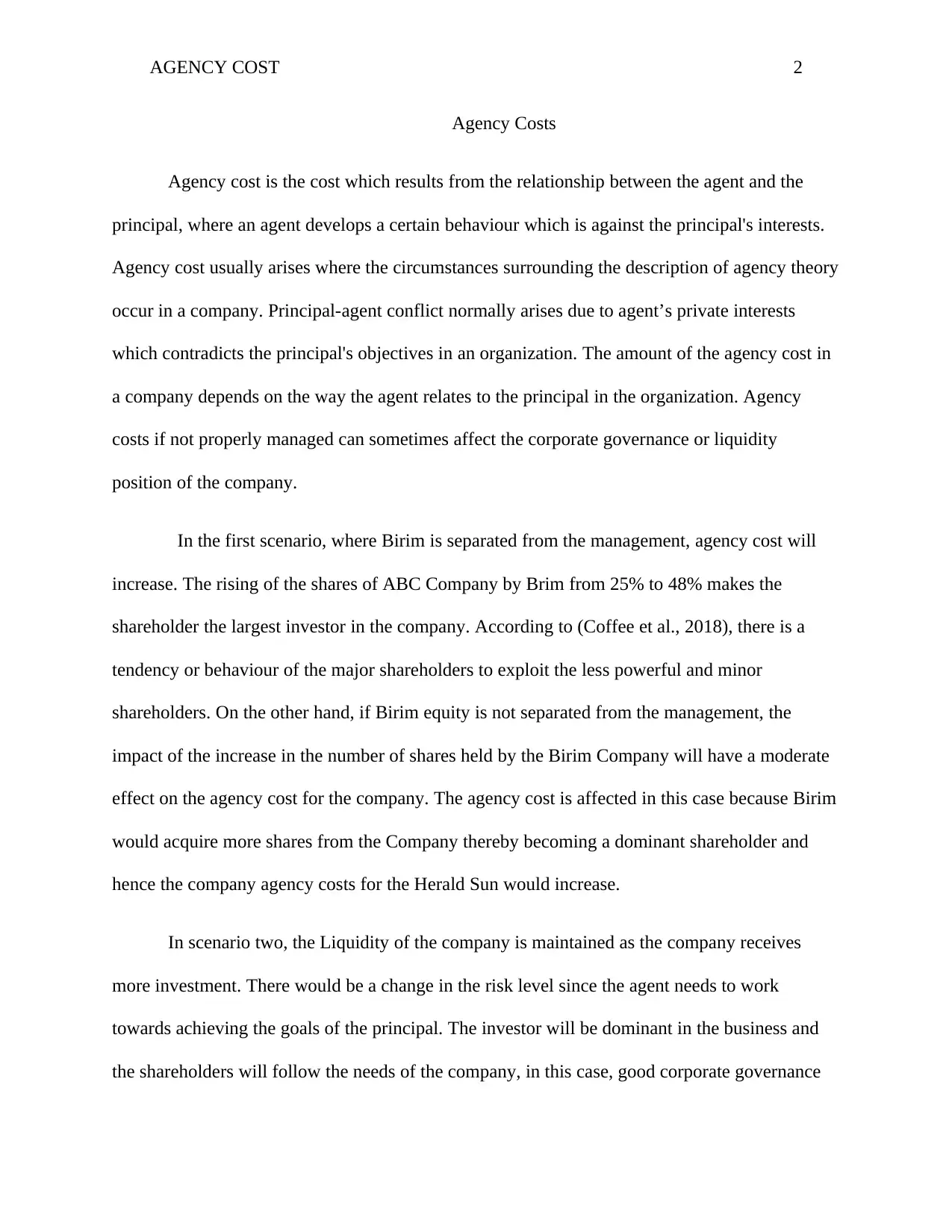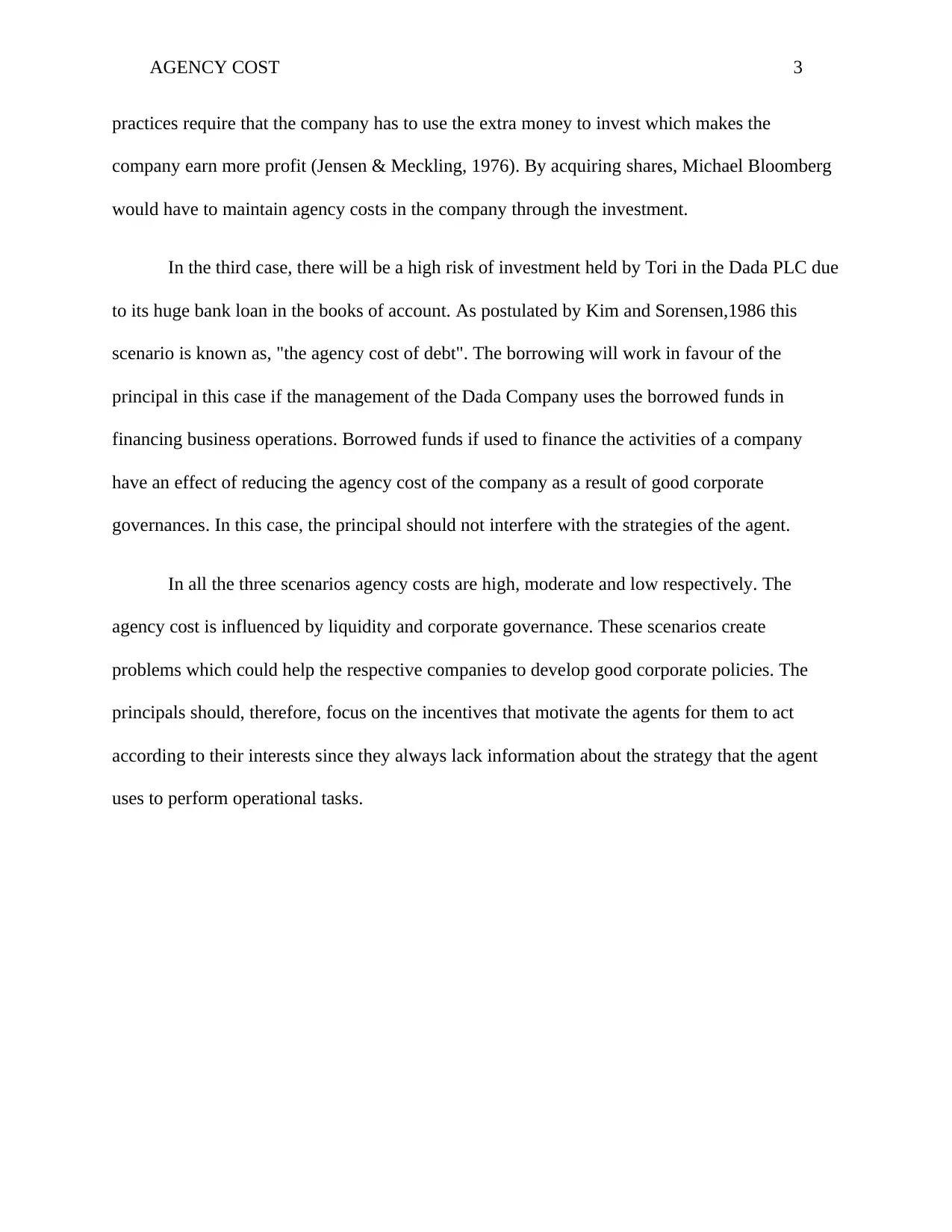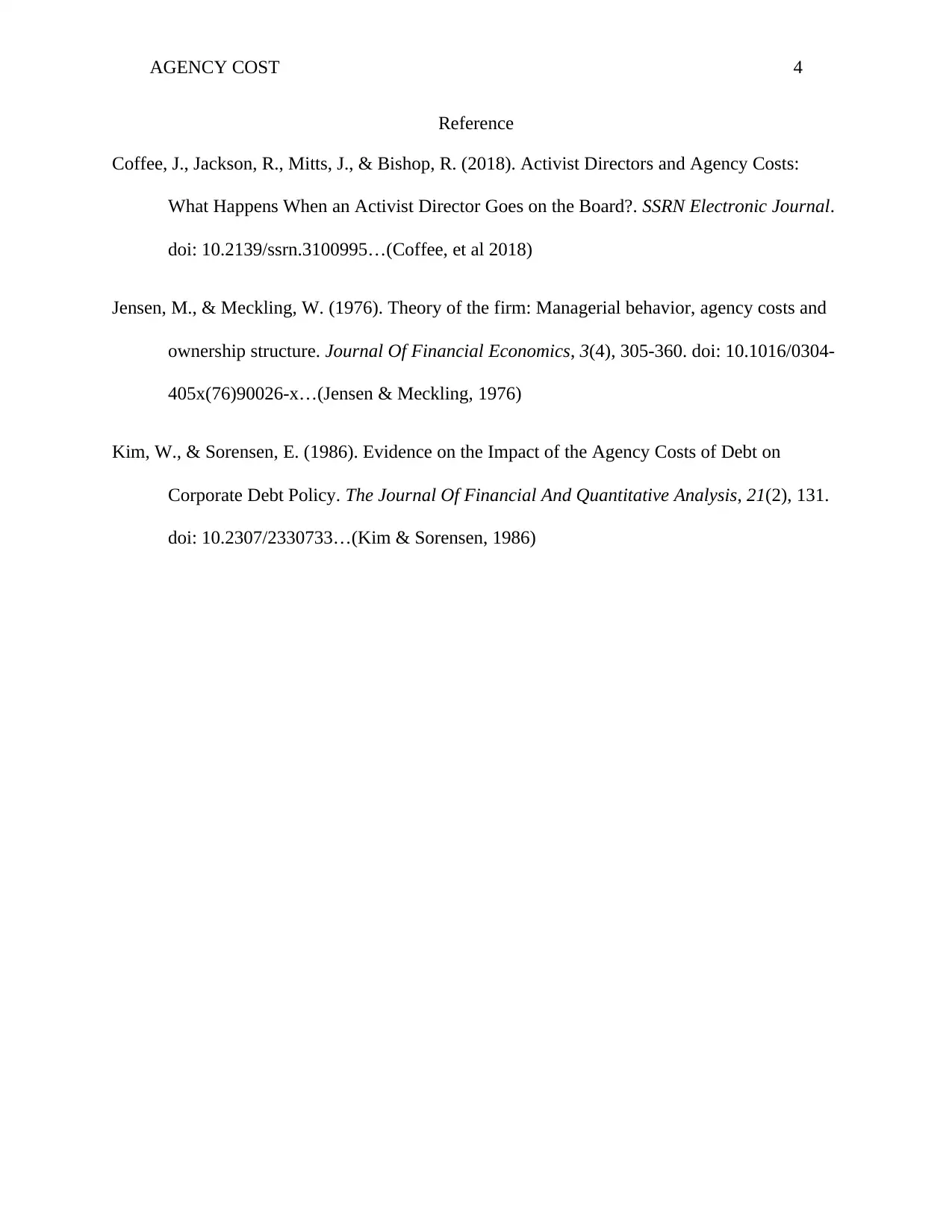Agency Cost Analysis: Impact on Corporate Governance and Liquidity
VerifiedAdded on 2023/06/07
|4
|766
|244
Report
AI Summary
This report provides an analysis of agency costs within the context of financial accounting, exploring the relationship between agents and principals and the conflicts that arise due to differing interests. The report examines three scenarios, assessing the impact of shareholder influence, investment strategies, and debt financing on agency costs, corporate governance, and liquidity. It references key academic works to support its arguments. The analysis highlights how agency costs can influence corporate governance and financial performance, offering insights into how companies can develop policies to mitigate conflicts of interest and optimize financial outcomes. The report emphasizes the importance of aligning incentives between agents and principals and managing the risks associated with debt and investment decisions. It underscores the need for good corporate governance to navigate these challenges and maximize shareholder value.
1 out of 4










![[object Object]](/_next/static/media/star-bottom.7253800d.svg)